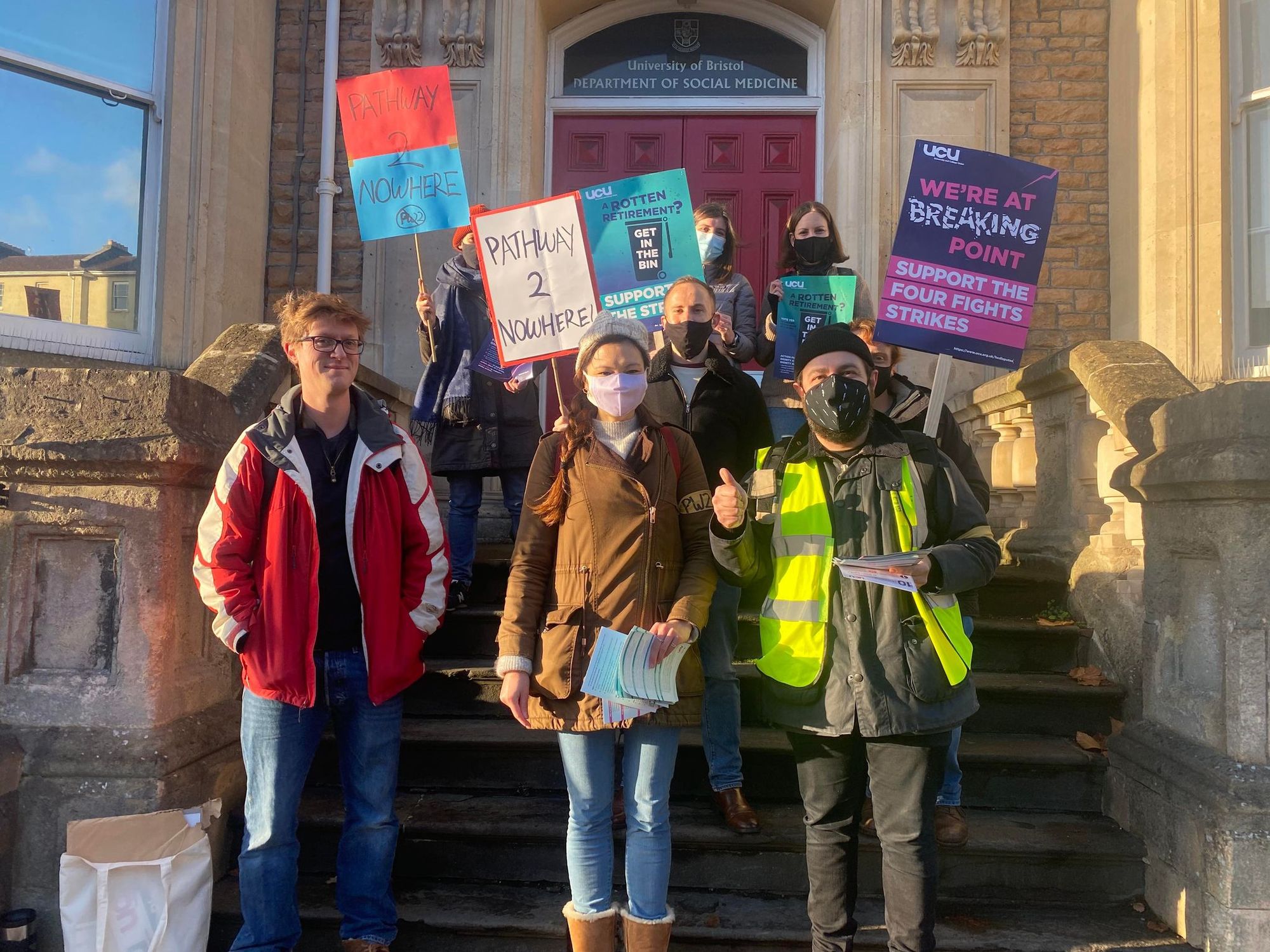By Billy Stockwell, Investigations Editor
It's no secret that Bristol University has an impressive history when it comes to its environmental record. In 2019, it was the first UK university to declare a climate emergency, one year later removing all of its investments in the fossil fuel sector. But what if, hidden in the University accounts, there was a far bigger problem? A problem that meant student fees were still being funnelled into the fossil fuel sector?
These hidden investments are ironically made in order to safeguard the future, for staff members at least, ensuring that they have financial stability into their retirement years. These investments are pension pots. Last year, Bristol University and staff members paid over £50 million into the largest private pension fund in the UK, the Universities Superannuation Scheme (USS). In 2020, this scheme was estimated to invest £1 billion into fossil fuel companies, including Shell and India-based Reliance Industries.
This means that around 45 per cent of all Bristol University staff have their pensions invested in fossil fuel companies. If you only focus on academic staff, many of whom are involved with “world-leading environmental research”, according to the University website, this percentage is almost 100 per cent. Whilst this is not a problem specific to Bristol, some Bristol staff have decided that this issue is too important to ignore.
Increase the pressure on USS to divest- currently they have over £ 1 billion in fossil fuels and only vague slow plans for ‘net zero’. Use the link to get your message across to the trustees and share with others. Thanks #USSdivest #makemymoneymatter https://t.co/Z4wgNV0Dih
— Divest USS (@DivestUSS) January 21, 2022
Dr Neil Davies, a senior research fellow at the Bristol Medical School, has been trying to raise awareness about the USS for about 4 years. He is currently taking legal action against the USS directors and the chief executive Bill Galvin for their historic lack of climate action. ‘We raised about £50,000 to initiate a legal action against the individuals who run the scheme to try and get more accountability for their actions,’ he tells Epigram.
Whilst acknowledging that Bristol University has made progress, for example, by publishing a joint letter to the USS asking them to divest from fossil fuel companies by 2024, Davies believes that the USS shouldn’t be investing in the fossil fuel sector at all. ‘It's scandalous that we're teaching students about climate change, but we're also putting money into a fund that invests in companies that are contributing in a very major way to climate change,’ he says.
Very few academic staff know what companies the scheme invests in, Davies says, and even fewer have decided to take action because of this investment in the fossil fuel industry. ‘If you come across anyone who says that they have opted out let me know because I'd be very surprised’ Davies admits. ‘I would imagine that almost nobody has chosen not to enrol because of these problematic investments … Historically, you've just given your money to them and they've sorted you out.’

This is not something that staff members can easily change. Davies is keen to emphasise that even if staff do know about these problematic investments, none of them have control over the pension scheme, not even the Vice-Chancellor. Tobacco companies. Arms companies. Fossil fuel companies. These are just a few of the industries where the USS has invested in recent years, some of which it has now divested from.
Staff earning over £60,000, senior lecturers and professors, and those that make voluntary additional contributions, get more choice about where their savings are invested. However, only around 10 percent of Bristol University's contributions are invested in this way, according to monthly payroll data.
‘We need to inform students and staff about what these funds are doing,’ Davies believes. ‘Students in particular have an incredibly strong voice within the University. They are the reason that the University is here. If students are concerned about this, they should raise those concerns as vocally as they can.’
DIVEST USS!
— Jason Scott-Warren (@jes1003) August 5, 2021
A legal crowdfunder for action to divest the main University pension scheme. And to save the pension scheme in the process.
£42K of £50K target already raised.https://t.co/8vx2u1pOyB #ClimateEmergency #divestUSS
Robert Kerse, Chief Operating Officer at the University, tells Epigram that over the last five years he too has been working alongside student groups on divestment campaigns. ‘We were pretty much the first Russell Group institution to fully divest from fossil fuel investments. But once we'd accomplished that we thought what next? Where do we need to go in terms of those investment activities? That took us to the USS,’ he says.
In February 2020, Kerse was involved with writing an open letter to the USS asking them to divest from fossil fuel companies. The letter, which was signed by the University, Bristol’s UCU branch and Bristol SU, reads: ‘We call on USS to divest completely from the fossil fuel industry over the next 48 months and make investments into non fossil fuel energy companies and energy schemes that are both economically and environmentally sustainable.’
Kerse says that they decided to give the USS four years to divest because the scheme needed time to find suitable replacement investments. However, nearly two years have now passed since this open letter was signed and whilst Kerse believes that some progress has been made, the USS have clearly not gone far enough.
‘Around June 2021, the USS committed to divest from companies that are principally involved in the mining of thermal coal, and that is often where institutions start their divestment,’ he says. ‘It's where the University of Bristol started its divestment journey.’

However, the scale of the problem demands the USS to go even further, says Kerse. ‘We feel that USS has a very strong weighting towards fossil fuels which we don't believe are sustainable, either because of their impact on the planet, on livelihoods, on wellbeing and then also because we don't believe they are a sustainable source for the future. There is a very significant risk that those investments could become worthless in the future.’
In response to these claims, Joel Sawyer, Corporate Communications Manager at the USS, signposted Epigram to a blog post which lays out their commitment to be Net Zero by 2050. The blog post reads: ‘There are those who believe that divestment, particularly of fossil fuel companies, would be the answer. However, at USS we believe society cannot divest its way to Net Zero as, for example, if USS sells an asset, another investor will simply buy it, making no difference to the carbon emitted.’
Opinion | All I want is a pension, and if at all possible a planet to live on….
University of Bristol successfully divests from fossil fuel companies
In another document, the USS says that ‘we believe that the world will continue to need some level of fossil fuels for the coming decades … As a result, we would rather seek to influence those who, at a regulatory or corporate level, are playing a critical role in bringing about a lower carbon economy’.
So, what's next in this story? Well, Davies says his legal action is ongoing, but he expects to hear back about the progress of it in March 2022. Around the same time, Kerse says that the USS are launching a consultation about it's investment strategy. ‘It's probably best to make a big splash about it all at that time,’ he says.
Featured Image: Epigram / Billy Stockwell
Do you think USS should divest from fossil fuel companies?








